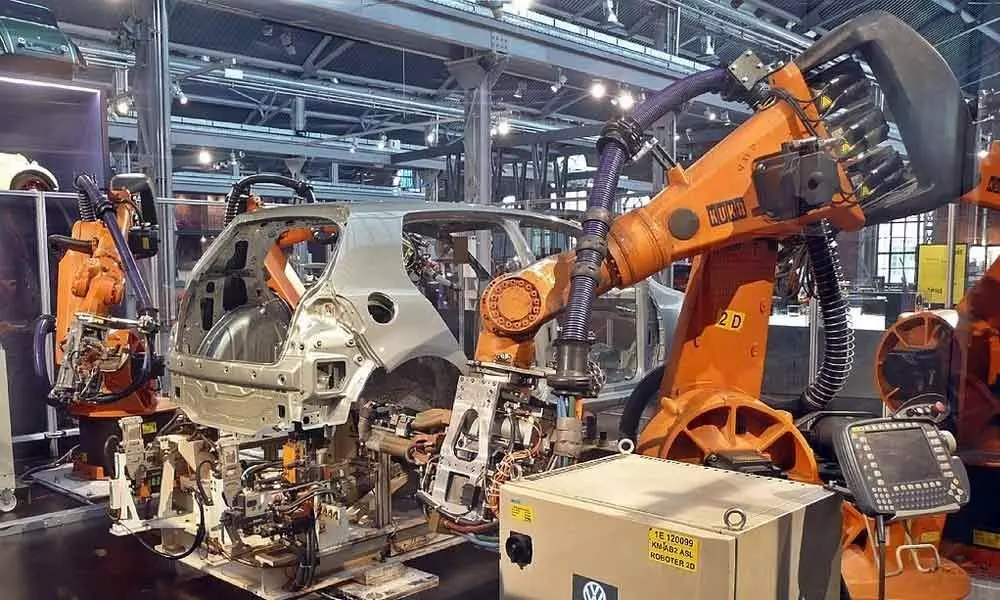Corporate Tax cut may not deliver growth

Finance Minister Nirmala Sitharaman has recently reduced the income tax payable by large companies which is known as “Corporate Tax.” It has been reduced from about 30 percent to 25 percent.
Finance Minister Nirmala Sitharaman has recently reduced the income tax payable by large companies which is known as "Corporate Tax." It has been reduced from about 30 percent to 25 percent.
The Finance Minister believes that companies will invest more lured by this concession and the economy will attain a high growth path. The Finance Minister is right that reduction in Corporate Tax will make available larger amounts of surplus to the companies for investment.
However, it is not clear whether they will invest in India or abroad. Most companies today have global contacts. The ground reality today is that not only companies, but also rich individuals are investing a large part of their incomes in foreign countries.
Our capital is flowing out because they are not confident of the economy. It is like a farmer having more surplus available for investment, but he is not confident of the rains. Will he invest in agriculture? Likely, no.
On the other hand, he may borrow and invest in agriculture if he was assured of irrigation. The decision to invest is more dependent on the expected profits and less on the availability of surplus.
Similarly, both Indian and Multinational Companies have to decide whether to invest in India or abroad. As of now they appear to be transferring part of their incomes abroad. They are making outward foreign investment.
They are inflating import bills and deflating export bills. The saved money is collected by them in the foreign countries. Money is also going abroad in the purchase of gold and foreign goods like Swiss Chocolates.
These trends indicate that companies may not invest in India due to the recent tax cuts. There is no reason why a company would invest Rs 200 crore in India if it did not find it profitable to invest Rs 100 crore here.
The reduction in Corporate Tax may, therefore, have exactly the opposite of the intended result. The additional surplus made available to companies from lower taxes can lead to an increase in the outflow and push India into a deeper recession.
The solution was to give incentives in purchase of land, GST and, maybe, direct subsidies to labour intensive sectors. That could generate employment and demand and, in turn, lead to more investment.
Instead of tax cuts, the Finance Minister could have given direct investment incentives.
The Finance Minister has also made a steep reduction in Corporate Tax payable by companies making new investments in the manufacturing sector. This has been reduced to 15 percent — much lower than the reduced rate of Corporate Tax of 25 percent as described above.
However, the manufacturing sector is unlikely to bring investments. The main reason is that the comparative advantage enjoyed by the developing countries like India and Vietnam due to low wages has become irrelevant because of the use of robots and automatic machines.
Previously the robots were used sparingly. Multinational companies found it profitable to manufacture in India because the wages were lower here.
But the robots are being used profusely now. The number of workers required in the manufacturing has declined. In consequence, manufacturing is returning to the developed countries because the number of workers required is less.
A factory has reportedly been established in China where there is not a single worker on the assembly line. All works such as unloading raw material, processing in the machines, packing and warehousing are done by robots.
It is profitable to establish such factories in the developed countries because of the less requirement of labour and easy availability of cutting-edge technologies.
For this reason, we will not be able to attract large investments in the manufacturing sector. The Finance Minister should consider extending these incentives to the services sector which has immense growth potential.
The Finance Minister has reduced the rates of Capital Gains Tax payable by Foreign Institutional Investors who invest monies in our share markets.
We need to appreciate the decision algorithm of the foreign investors. They look at not only the income tax rates but also the movement in the currency. Let us say, an investor invested one US Dollar or Rs 70 in India in 2018.
The value of this share increased to Rs 72 in 2019. The investor made a profit of Rs 2. However, let us say, the value of the rupee declined in this period from Rs 70 to Rs 74.
Now, after having sold the share at Rs 72, and having made a profit of Rs 2, the investor would get only 98 cents because the value of the rupee has declined in this period.
The low growth rate of the Indian economy does not inspire confidence in the rupee. Therefore, the foreign investors will not invest in India lured by the attraction of the reduced capital gains tax.
They would be more concerned about the loss they may incur because of decline in the value of the rupee. The Finance Minister should have considered placing restrictions on outflow of our own capital instead of trying to attract foreign investors.
The reduction of revenue due to these concessions is expected to be Rs 1,45,000 crore per year. In the present year, this loss can be made up by the transfer of about Rs 1,70,000 crore made by the Reserve Bank of India.
This constitutes of annual profit of about Rs 1,20,000 crore and a one-time transfer of reserves of about Rs 50,000 crore. The RBI may transfer the profits in the coming years as well, but it is unlikely to make more transfers from depletion of reserves.
The revenue foregone, therefore, will necessarily have to be made up by disinvestment of public sector or by increasing the tax burden on the common man. The consequence of the latter will have a disastrous result.
The purchasing power of the common man will reduce, there will be less demand in the market, and there will be less investment. The Finance Minister could have considered taking steps to increase the purchasing power of the common man.
For example, it could be provided that highways will be made using more labour and less excavators and JCBs. The steps taken by the Finance Minister are good in intention but ignore the ground realities staring in our face and are likely to lead to results opposite of those intended.
Author was formerly Professor of Economics at IIM Bengaluru








